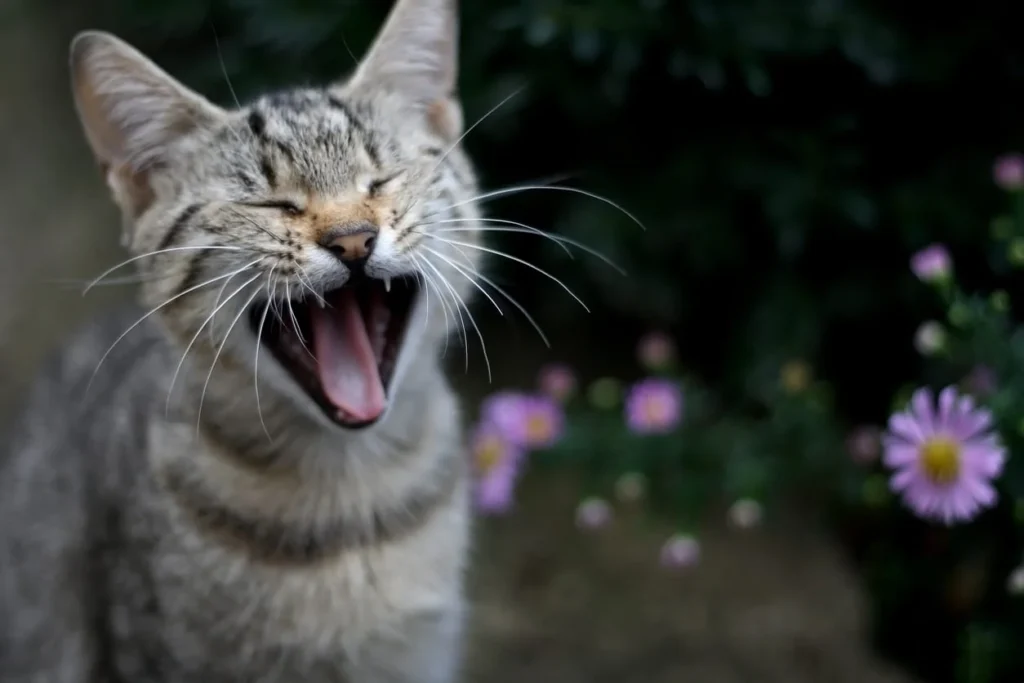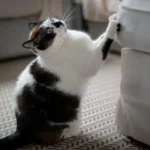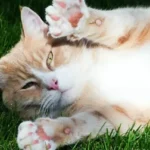If you’re a cat owner, you’re likely familiar with the unmistakable sound of your feline friend meowing during the late hours.
While a cat’s meow can be endearing, the nocturnal noise can also be disruptive. But why do cats meow at night?
Understanding the underlying reasons can help address the behavior and improve both your cat’s well-being and your sleep.
1. Hunting Instincts and Activity Patterns
Cats are natural predators, and their instincts are often more active at night. While domesticated cats may not need to hunt for food, they still retain this instinct.
Cats are crepuscular animals, meaning they are most active during the twilight hours of dawn and dusk. At night, they may feel the urge to explore, stalk, or play, which can lead to increased vocalizations.
2. Seeking Attention
Cats are known for being social animals, and they may meow at night simply because they want attention from their owners.
Whether it’s for petting, playtime, or just a little companionship, some cats are more vocal when they feel lonely or bored during the quiet hours of the night.
3. Hunger or Thirst
A common reason for nighttime meowing is hunger or thirst.
If a cat hasn’t been fed enough during the day or if their feeding schedule is inconsistent, they may wake you up at night to request food. Similarly, if their water bowl is empty, they may meow to indicate their thirst.
4. Discomfort or Health Issues
If a cat starts meowing more than usual at night, it could be a sign of discomfort or a health issue.
Cats are known to hide pain, but vocalizing can be their way of expressing distress.
Problems like arthritis, dental issues, or digestive problems can cause discomfort, prompting your cat to meow, especially at night when they are more alert and active.
5. Stress or Anxiety
Changes in the household environment or routine can lead to stress and anxiety in cats, which may trigger more vocalizations at night.
Whether it’s a move to a new home, the introduction of a new pet, or even a change in the cat’s sleeping area, these disruptions can make a cat feel unsettled and lead to more nighttime meowing.
6. Age-Related Changes
Older cats, in particular, may meow more at night. Cognitive dysfunction syndrome (similar to dementia in humans) can affect older cats, causing confusion, disorientation, and increased vocalization.
If your cat is aging, nighttime meowing could be a sign that they are having trouble navigating their environment or experiencing discomfort.
7. Trying to Wake You Up
Sometimes, the simplest reason for nighttime meowing is that your cat is trying to wake you up for a specific reason.
They may want to be let into another room, need help with their litter box, or are simply bored and want to get your attention for some late-night companionship.
How to Address Nighttime Meowing
While some degree of nighttime meowing is normal, persistent or disruptive meowing can be managed with a few strategies:
- Maintain a consistent feeding schedule: Make sure your cat has enough food and fresh water before bedtime to avoid hunger-related meowing.
- Playtime before bed: Engage your cat in interactive play during the evening to help burn off excess energy and tire them out before sleep.
- Create a comfortable sleeping environment: Provide your cat with a designated sleeping area that feels secure and comfortable. Some cats may feel more at ease with a cozy bed or a blanket they can burrow into.
- Consider medical issues: If the meowing persists and is accompanied by signs of discomfort, it’s a good idea to consult a veterinarian to rule out health problems.
- Ignore attention-seeking behavior: If your cat is meowing for attention, avoid reinforcing the behavior by responding immediately. This can help break the habit.
Conclusion
While nighttime meowing can be frustrating, it’s important to remember that cats vocalize for various reasons, and it’s often a way for them to communicate their needs.
By understanding why your cat meows at night, you can find appropriate solutions that help both you and your feline companion get a restful night’s sleep.



